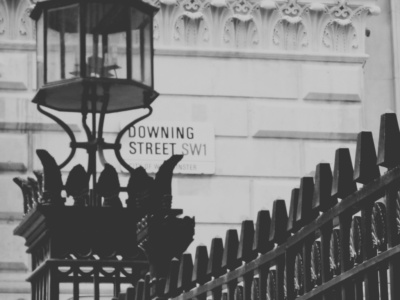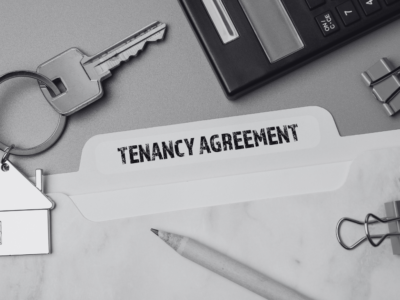The housing market has been a surprisingly buoyant place since spring and the start of the easing of lockdown, with prices and activity strongly higher.
The market has momentum and the big question is whether it has enough to take it through what the chief medical officer, Professor Chris Whitty, has said will be a difficult winter for Covid-19, and the inevitable rise in unemployment when the furlough scheme is phased out.
Some say not – in a new forecast the Centre for Economics and Business Research predicts that house prices in 2021 will be 13.8% lower than this year – but we shall see.
While estate agents are celebrating the bounce, landlords have not had much to cheer. Rent arrears increased during lockdown and landlords have been constrained.
At the end of August, the government announced what it described as “an unprecedented package of support” for renters. It extended the halt on possession proceedings until September 20 and introduced legislation which, except in the most serious cases, will mean tenants cannot be legally evicted until March 2021.
Many will applaud protecting tenants during the pandemic, and most landlords will see the fairness of it. But it comes on top of what they see as a series of assaults on them by Tory politicians, long before the coronavirus crisis. One of the options Rishi Sunak has been considering to meet the cost of the crisis has been increasing capital gains tax to bring it into line with income.
It is not clear if if that will make the cut for the November Budget – at the moment the prime minister is talking about “Operation Moonshot” to spend another £100 billion on mass Covid-19 testing – and the talk of tax hikes has died down a little.
In the meantime, while it has had less attention than rebound in buying and selling, something has also begun to stir in the lettings market.
The Royal Institution of Chartered Surveyors (RICS) latest residential market survey, published on September 9, showed what it described as a sharp rise in tenant demand, alongside broadly flat landlord instructions. These, having picked up since lockdown, appear to have flattened out.
The result, according to RICS, is a strong rise in rental expectations among agents.
As it put it: “Rental growth expectations over the near term have now strengthened in each of the past three months, with a net balance of +31% of contributors now anticipating an increase (+22% in July).”
Hamptons International, in its latest monthly lettings index, noted a new post-lockdown phenomenon, which is that working from home has produced a demand for extra space among tenants.
According to Hamptons, 34% of tenants moving post-lockdown have added at least one bedroom to their new property, and the average “upsizing” renter has paid 23% or £149 a month more in rent. This trend is strongest in the South East, with 47% of tenants looking for more space, followed by the North West (37%) and London (33%).
“Renters have joined homeowners in the race for space by rushing to the suburbs where the number of tenants looking to rent is up on last year,” said Aneisha Beveridge, head of research at Hamptons International.
“With tenant’s priorities changing, upsizers have swapped smaller city centre flats for three-bed semis on the fringes of town. While the premium placed on green space is growing each month, upsizing tenants have typically stuck to the outskirts of cities they know rather than leaving altogether.”
This is not reflected yet in rents, according to Hamptons. It found that average rents across Britain in August were 0.5% lower than a year earlier, led by a 3.9% fall in London.
There was also a 0.8% fall in the South East and 0.1% in the East of England, though there was strong growth in rents in the South West, up 3.6%, the Midlands, 2.6%, the North, 2.5% and Wales, 3.9%. There is quite a lot to play for over the coming months.






















Great news for the landlords.
I think we all know there has been an increase in sales but what is not being mentioned is where the property stock is coming from.
We hear that there is an increase in rental demand (as mentioned in the above article) is this a clue to our commercially challenged politicians?
Is this confirmation that landlords are selling up or are the sales resulting from some landlords tired of the conservative landlord bashing brigade selling to less well informed residential investors who still think the PRS is a good place to invest?
Of course, we also have the London Mayor who, with his Generation Rant, buddies seem to be under the illusion rent control will be the answer; when even respected academics have studied the impact of the Rent Act 1977 which killed the rental market and caused untold damage and deterioration to the housing stock as landlords could not afford to repair their property and investment in residential property was so unattractive no one invested.
Around 1980 the controlled rents in Lewisham would have been around £7-9 a week for a typical victorian terraced house and a decent salary around £5,000 pa.
A typical minor roof repair (replace a couple of slates) about £20.00.
Property would sell with sitting tenants for about 30%-35% of VP value but mainly where there was an ageing tenant with little risk of the tenancy passing on; where the goal was the capital gain from a vacant possession sale.
Dear Sir,
It is always interesting to read future trends in any market particularly as the housing market is one that is very tricky to read presently.
Housing is a social economic game as people buy in areas where like minded/socially similar people live and of course values are set by a balance between mortgage rates and lending multiples on income and the size of the available property market to buy into at any given moment.
The market did not crash and burn after 2007 because interest rates were low and unemployment although affected was not a big enough problem to cause lots of property to be pushed onto the market.
The Brexit negotiations stopped a large number of people getting on with life and so few houses have come up for sale over the last 4 years.
Now Covid 19 which closed the residential selling market down for 4 months has eased, just for the moment, so at least 4 years pent up energy (post Brexit) has been released with lots of purchasers getting on with moving in a market with few houses for sale and as such effectively pushing prices up across large areas of the country. However it must be the case that these purchasers feel that they will remain safe from the effect of covid/unemployment or they would not buy now and until many more units of homes come on the market this upward push will probably continue.
If next year we see unemployment rise it could eventually force properties onto the market as repossessions and those prices will dictate the value of similar properties regardless of anything else.
Surely the market will contract in valuation terms, but if many home owners are not affected those forced sale houses will be sold and the effect might not last very long.
Whether this is a local, regional, work sector or national problem remains to be seen with each scenario bringing with it a larger or small effect but to talk about a given % shift across the country seems to be providing an amazing clear picture from a particularly muddy one.
There is also lots of talk about negative equity in the market.
This can be a problem but only to those who have to sell and nobody else.
We perhaps need to take a longer view about homes and realise that they are places to live in and not just an investment opportunity that cannot be considered except as part of an investment portfolio.
That way we open ourselves up to a stock market rise and fall scenario which is far to fickle a regime for providing the long term stability with our homes that surely we all need.
I write only because the number of articles written on this subject seem to want to encourage a property market down turn or problem.
Surely to frighten people and help to provide a self fulfilling prophecy, does not need to happen or be encouraged, certainly not quite to the extent that we might talk ourselves into.
It also seems to be the case that lots of articles are written about the London market that is very different from the rest of the UK.
I thank you for the opportunity to send this reply to you.
Geoff Maybank FRICS